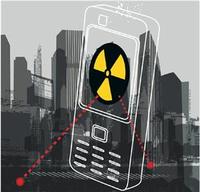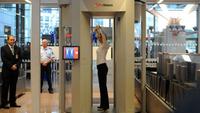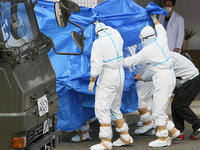-
Japanese military buys biowarfare detectors
The U.S. military deploy the Joint Biological Point Detection System (JBPDS), and the Japanese military want to do the same, awarding a North Carolina company a $9 million contract
-
-
Molecule may aid nuclear waste clean-up
Scientists have produced a previously unseen uranium molecule in a move that could improve clean-up of nuclear waste
-
-
Monitoring nukes with social media

Acting Undersecretary of State for Arms Control Rose Gottemoeller is actively trying to find a way to incorporate social media tools to prevent nuclear weapons proliferation and keep fissile materials out of the hands of terrorists; the department wants to have crowdsourcing tools developed that could help ordinary citizens monitor a government’s nuclear activity and whether it was adhering to its stated promises
-
-
Tighter regulation of industry’s disaster preparedness required
Before 11 March 2011, Japan was held up as a paragon for preparedness; they had a national readiness plan, regular disaster drills, and strong civic engagement; the Fukushima disaster exposed a disturbing reality: search and rescue efforts were delayed, shelters ill-equipped, and supply chains broken; worst of all, there was confusion about who was managing the nuclear accident — the power company TEPCO or the Japanese government; information, when forthcoming, was sometimes contradictory
-
-
Researcher develops highly sensitive, nanomaterial gas detector
A doctoral student at the Rensselaer Polytechnic Institute has developed a new sensor to detect extremely small quantities of hazardous gas
-
-
Universal Detection unveils radiation detection smartphone app
Last week Universal Detection Technology unveiled its first generation smartphone app designed to detect nuclear radiation levels on a variety of surfaces including food
-
-
New paper gas detectors developed
Researchers at the University of Michigan, Ann Arbor, have developed a quick and simple way to detect the presence of nerve gases
-
-
U.K. worried about dirty bombs

U.K. deputy prime minister Nick Clegg warned that materials to make a dirty bomb are readily available – so much so, that police forces cannot hope to contain such a threat; “That is a stateless threat, impossible for any national police force, no matter how advanced, to contain,” he said
-
-
Better policies needed to reduce radiation exposure in nuclear accidents
A new study says that offsite policies and plans should be put in place to reduce the exposure of the public to radiation in the event of a nuclear power plant accident
-
-
New radiation sensor developed
Scientists have created one of the most advanced radiation sensors in the world: an X-ray detector that can reveal the composition of materials in a fraction of a second
-
-
DHS report concludes airport scanners are safe

A new report by the DHS Inspector General concludes that the Transportation Security Administration’s (TSA) full body scanners are safe; the IG reviewed five independent studies and concluded that an airline passenger would have to be subjected to 17,000 screenings a year, or forty-seven a day, to reach the limit of acceptable radiation dosing
-
-
New report paints dire picture of Japanese Fukushima response

A new report reveals that last year’s nuclear crisis at Japan’s Fukushima Daiichi atomic energy plant was dangerously close to spiraling out of control as senior officials bickered internally, lacked critical information on the extent of the damage, and covertly considered the possibility of evacuating Tokyo
-
-
Trinity University students help raise bomb sniffing dog
With the help of students at Trinity University in San Antonio, Texas, Jjurgens is being trained to fight against terrorism; Jjurgens, a four-month old yellow Labrador retriever, is the only dog in the United States being fostered at a university or school under the Transportation Security Administration Canine Breeding and Development Center program
-
-
Detecting explosives from a distance with laser beams
Scientists have found a way to detect chemicals over long distances, even if they are enclosed in containers; the scientists tested the system by trying to detect frequently used explosives, such as TNT, ANFO, or RDX from a distance – and the tests were successful
-
-
Rats trained to detect explosives
Bomb sniffing dogs could be a thing of the past thanks to explosives seeking rats; unlike dogs, when rats detect sensitive explosives like land mines they rarely set them off as they weigh less than pound
-
More headlines
The long view
Keeping the Lights on with Nuclear Waste: Radiochemistry Transforms Nuclear Waste into Strategic Materials
By John Domol
How UNLV radiochemistry is pioneering the future of energy in the Southwest by salvaging strategic materials from nuclear dumps –and making it safe.
Model Predicts Long-Term Effects of Nuclear Waste on Underground Disposal Systems
By Zach Winn
The simulations matched results from an underground lab experiment in Switzerland, suggesting modeling could be used to validate the safety of nuclear disposal sites.
